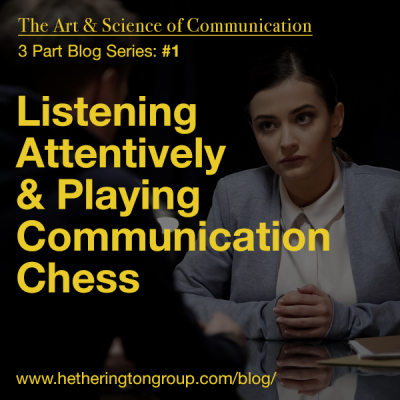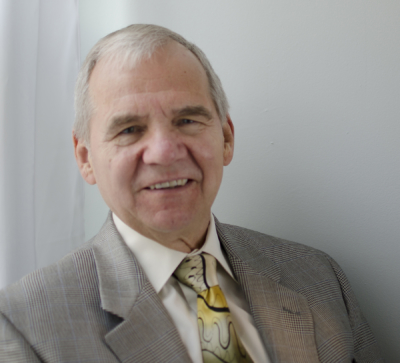Listening Attentively & Playing Communication Chess
By William Majeski, LPI, Senior Advisor

Social media searches can be fruitful for the investigative researcher. Clues gained through open source techniques are often incredibly handy. An investigator can create serious leads to further an investigation and run analytical exercises to help reveal the greater or lesser results of your targeted goals. But overall, most online intelligence gathering is done in the pursuit of supporting the investigative interview. To have all the answers in-hand before you step into an interview’s conversation makes for a powerful advantage. Conversely, if you start a conversation without anticipating the answers or knowing what to expect, you can truly be taken off guard—to possibly disastrous results.
In this 3-part blog series, William Majeski, Hg’s Senior Advisor and investigator, explores the art and science of communication. As a seasoned investigator, I know when my limits are showing. It’s then that I lean on Majeski to review my findings and to start asking the hard questions. ~ Cynthia Hetherington
Throughout investigative history, one element has remained a constant: Skillful communication. The investigator’s ability to convey a message and successfully interact are fundamental to the investigative process. It will always be an essential ingredient in the formula that will achieve productive information and lead to successful outcomes. Any investigator with a solid foundation of sound investigative practices and exceptional communication skills will always find a resolution. This week we review the five strategic ways we can enhance our interview skills and focus specifically on Listening Attentively and Playing Communication Chess.
The Interview
The interview is the heart of an investigation, and skillful communication is its soul. It is a conversation with the purpose of gathering information; a process in which we deal with people, their thoughts, their actions, their reactions, and their emotions—none of which are always predictable. Ideally, we’d like our interviewing skills to be a masterful technique in which we can adjust to any interview regardless of the subject or the circumstances.
We can help achieve these goals by enhancing our performance skills in five strategic ways: Listening attentively, Observing body language, Understanding the power of body language, Playing communication chess, and Practicing pre-interview preparation.
Listening Attentively
In an interview, everyone hears the conversation, but few pay mindful attention to what is being said—and not being said. Some examples:
Poor Listeners: Prefer to not expend necessary energy to engage in the dialogue, and often do more talking than listening.
Indifferent Listeners: Developed a habit of tuning out too much information, and are easily distracted, losing the ability to focus on the discussion.
Good Listeners: Intensify their conscious level of concentration, listen vigilantly. Absorb, evaluate, and thoughtfully construct appropriate responses both verbally and non-verbally. Hear those almost imperceptible sound signals—often clues to unspoken information (change in rhythm/tone/pitch, a cracking voice, a sudden stutter/ stammer, hesitation, pause, and silence, etc.).
Attentive listening harvests useful information; capturing sound signals alerts us to potential clues of deception. When an escaped unconscious sound disrupts the consistency of the dialogue, the disruption often translates into a misrepresentation of what is being said. It is the unconscious sound in conflict with the conscious words.
Playing Communication Chess
We think faster than we speak and can evaluate as we listen. Take full advantage of this spare thinking time.
Think of a personal conversation—the outcome of which is very important. Think of the intensity of that conversation. In such a case, our natural abilities are heightened, using that spare thinking time to listen acutely and speak precisely; we listen, observe, anticipate, theorize, calculate, and conclude. We played Communication Chess. To intensify every interview, put a higher level of importance on the results.
 With twenty years of global experience uncovering information on foreign business interests, small private companies, and backgrounding individuals and products, Hg’s expert advisers employ interviewing techniques that reveal far-reaching intelligence on hedge funds, private equities, and corporations; their principles, investment managers, and employees. Our interviews are conducted onsite and serially over a pre-determined period of time to probe leadership, the team, philosophical beliefs, tools, procedures, and systems. Learn how our team can help you mitigate risk at home and abroad.
With twenty years of global experience uncovering information on foreign business interests, small private companies, and backgrounding individuals and products, Hg’s expert advisers employ interviewing techniques that reveal far-reaching intelligence on hedge funds, private equities, and corporations; their principles, investment managers, and employees. Our interviews are conducted onsite and serially over a pre-determined period of time to probe leadership, the team, philosophical beliefs, tools, procedures, and systems. Learn how our team can help you mitigate risk at home and abroad.
 Mr. William Majeski has been Senior Advisor and lead investigator on complex litigation matters to the Hetherington Group since 1998. A 21-year veteran of the New York City Police Department, Mr. Majeski provides security and investigative services to corporate, business, legal, and private clients. He has conducted thousands of interviews, polygraphs, and interrogations in his career. He is considered an expert on the subjects of communication and attentive listening.
Mr. William Majeski has been Senior Advisor and lead investigator on complex litigation matters to the Hetherington Group since 1998. A 21-year veteran of the New York City Police Department, Mr. Majeski provides security and investigative services to corporate, business, legal, and private clients. He has conducted thousands of interviews, polygraphs, and interrogations in his career. He is considered an expert on the subjects of communication and attentive listening.



